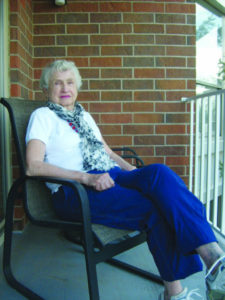 Everyone needs an education
Everyone needs an education
I don’t know why the idea didn’t create a real stir around the country. To offer education classes to convicted criminals is such an absurd suggestion! But it really did happen in the 1920s, and the program worked. The prison was the Charlestown State Prison in Boston, Mass., and the program was the brainchild of Howard Belding Gill, a criminologist and a Harvard University alumnus, who at one time was the superintendent of the prison. Elizabeth Hinton, an assistant professor at Howard University, must have thought it important when she wrote about it in the op-ed piece for The New York Times of March 7, 2018.
The prisoners/students wore normal clothing, participated in cooperative self government with staff and took academic courses with instructors from Emerson, Boston University and Harvard. They ran a newspaper, radio show and jazz orchestra, and had access to an extensive library. The program allowed incarcerated people from throughout the country to serve their sentences at a single site, designed like a college campus and to take classes full time. It was one of the few prisons that offered higher education classes.
Today only a third of all prisons offer college classes. Yale, Princeton, Cornell, Georgetown and New York University are among a handful of institutions that have begun to see a connection between the lack of education and imprisonment. College presidents are looking for ways to expand prison education programs, and it appears that education will continue to be a central part of criminal justice reform.
Good News
The New York Times of March 4, 2018, carried a most interesting full-page ad, one that is a reminder to us all that the U.S. judicial system can serve to act as a remedy for policies that it deems are injurious to the American people. It follows.
A FEDERAL COURT HAS ORDERED R.J.REYNOLDS TOBACCO, PHILIP MORRIS USA, ALTRIA, AND LORILLARD TO MAKE THIS STATEMENT ABOUT THE HEALTH EFFECTS OF SECONDHAND SMOKE.
1) Secondhand smoke kills over 38,000 Americans each year;
2) Secondhand smoke causes lung cancer and coronary heart disease in adults who do not smoke;
3) Children exposed to secondhand smoke are at an increased risk for sudden infant death syndrome (SIDS), acute respiratory infections, ear problems, severe asthma, and reduced lung function;
4) There is no safe level of exposure to secondhand smoke.






















